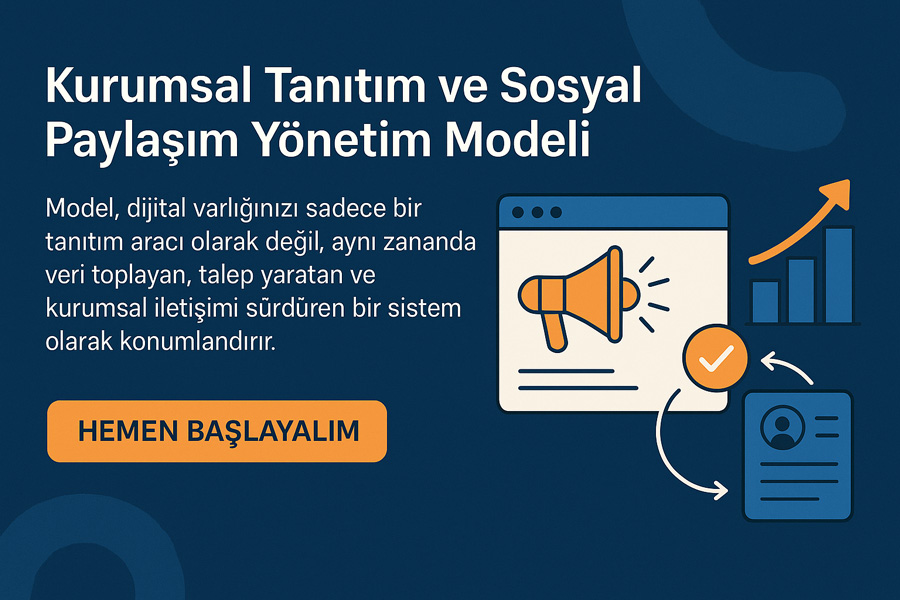Marketing information systems are among the vital tools for modern businesses. These systems help businesses develop more effective and efficient strategies with components such as marketing data analysis, digital marketing analytics and marketing automation software. Customer data management and marketing reporting tools are also important elements of these systems. Marketing data analysis helps businesses understand customer behavior and the effectiveness of marketing campaigns. Digital marketing analytics are used to evaluate the performance of online campaigns. These analyzes enable marketing strategies to be optimized and make it possible to reach the target audience more effectively.
Marketing automation software helps businesses save time and resources by automating marketing activities. These software perform many tasks such as automating email campaigns, social media management and customer interactions. CRM software is critical for customer relationship management. These software allow businesses to build better relationships with their customers by collecting customer data in a central system. Marketing reporting tools are used to measure the success of marketing campaigns and strategies. These tools provide businesses with detailed reports, helping them determine which strategies are working and which are not. Marketing data management is necessary to regularly store and analyze the data obtained in this process.
Data-based marketing refers to the creation of marketing strategies based on data analysis. This approach allows businesses to send more personalized and effective messages to their target audiences. Marketing analytics is used as part of this process to analyze data and obtain meaningful results. Data obtained from marketing information systems are of great importance to develop effective marketing strategies. Marketing research methods are used to gather in-depth information about the target audience, and this information helps make strategic decisions. Digital marketing reports and marketing performance analysis are also critical tools for measuring the success of strategies.

As a result, marketing information systems are indispensable for modern businesses to gain competitive advantage. These systems enable businesses to develop more effective and efficient strategies by helping to make data-driven decisions at every stage of marketing activities. Marketing information systems help businesses achieve better customer relationship management, optimize marketing campaigns and improve overall marketing performance. Therefore, effective use of marketing information systems by modern businesses is the key to success.
İçindekiler
ToggleBasic Components of Marketing Information Systems
Marketing information systems are critical tools for modern businesses to optimize their marketing strategies and gain competitive advantage. The basic components of these systems help businesses carry out more effective and efficient marketing activities by enabling them to make data-based decisions. Here are the basic components of marketing information systems:
Data
Data is the basic building block of marketing information systems. Data is the source of all information that businesses use when determining marketing strategies and managing customer relationships. Data is obtained from many sources such as customer behavior, purchasing history, market trends and more. This data provides valuable insights to businesses when analyzed correctly. Data should be continuously collected and updated to increase the effectiveness of marketing information systems.
Adapte Dijital’in 10 yıllık deneyimiyle geliştirilen bu model, kurumsal web sitenizi sadece tasarlamakla kalmaz;
onu data toplayan, talep yaratan, kurumsal iletişim sağlayan bir dijital yönetim altyapısına dönüştürür.
Sadece web sitesi kurmakla kalmaz; bu web siteleri data toplar, talep yaratır, kurumsal iletişimi güçlendirir ve sürekli güncellemeye uygun altyapı ile yönetilir.
Information
Data alone is not meaningful; It turns into information only when processed correctly. Information is the result of the process of analyzing and making sense of data. Businesses obtain this information using data analysis tools and shape their marketing strategies accordingly. Information provides businesses with in-depth understanding of topics such as customer preferences, market opportunities and competitive analysis. Therefore, one of the basic components of marketing information systems is information management.
Characteristics of Information
The value of information is measured by its accuracy, timeliness and reliability. Correct information enables businesses to make the right decisions. Up-to-date information increases the effectiveness of marketing strategies because market dynamics are constantly changing. Reliable information reduces risks for businesses and helps them develop safer strategies. These characteristics of information are critical to the success of marketing information systems.
Information Management
Information management covers the processes of collecting, storing, processing and distributing data. Knowledge management enables businesses to make the best use of the information they have. Effective information management gives businesses a competitive advantage and increases the success of marketing strategies. This process requires the use of correct information systems and secure storage of data.
Information Systems
Marketing information systems are technological tools that help businesses manage data and information effectively. Information systems provide the necessary infrastructure for the collection, analysis and reporting of data. These systems allow businesses to better plan and execute marketing campaigns. Information systems also increase the efficiency of businesses by working integrated with tools such as customer relationship management (CRM) and marketing automation software.
As a result, data, information, properties of information, information management and information systems, which are the basic components of marketing information systems, are indispensable for the success of modern businesses. These components help businesses develop more effective and efficient marketing strategies, increase customer satisfaction and improve overall business performance. 🌟📊
Strategic Marketing Decisions with Data Analysis
Data analysis is critical for businesses when creating and improving their marketing strategies. Accurate and effective data analysis allows businesses to understand market dynamics, predict customer behavior and make more strategic decisions. Here’s what you need to know about strategic marketing decisions with data analysis:
The Importance of Data Analysis
Data analysis is used to increase the effectiveness of marketing activities. Data analysis enables businesses to examine the data they have and obtain meaningful information from this data. This information is used in many areas, from planning marketing campaigns to managing customer relationships. One of the biggest advantages that data analysis provides to businesses is the ability to make data-based decisions. In this way, businesses can develop more accurate and effective strategies.
Strategic Decision Making
Data analysis is a powerful tool that businesses can use when making strategic decisions. Strategic decisions enable businesses to achieve their long-term goals. Thanks to data analysis, businesses can better understand market trends and customer behavior and use this information in strategic decision-making processes. Strategic decision making helps businesses gain competitive advantage and increase their market share. 📊
Adapte Dijital’in 10 yıllık deneyimiyle geliştirilen bu model, kurumsal web sitenizi kurumunuzu/markanızı anlatan, tanıtan, güven yaratan, talep oluşturan bir dijital yönetim platformuna dönüştürür.
Adapte Dijital, bu modelde bir konumlandırma ajansı olarak çalışır. Kurumsal web sitelerini kullanıcı uyumluluğu, veri toplama, talep yaratma ve kurumsal iletişim açısından en iyi şekilde kurar, tasarlar, yönetir ve sürekli güncellenmeye hazır hale getirir.
Understanding Customer Behavior
Data analysis is used to understand customer behavior. Customer behavior is one of the most important factors that businesses should consider when determining their marketing strategies. Thanks to data analysis, businesses can understand what kind of products or services their customers are interested in, their shopping habits and preferences. Understanding customer behavior offers businesses the opportunity to create more personalized and targeted marketing campaigns. 🛍️
Evaluation of Marketing Campaigns
Data analysis is used to evaluate the success of marketing campaigns. Marketing campaigns are the most important tools used by businesses to promote their products and services. Data analysis measures the impact of these campaigns, determining which strategies are working and which need improvement. Campaign evaluation helps businesses use their marketing budgets more effectively.
Following Market Trends
Data analysis is used to track market trends. Market trends are important indicators that businesses should consider in their strategic planning. Through data analysis, businesses can identify current trends and future trends. Following market trends guides businesses in developing innovative products and services. 📈
As a result, making strategic marketing decisions with data analysis is indispensable for the success of businesses. Data analysis helps businesses understand market dynamics, predict customer behavior and make more accurate strategic decisions. This process enables businesses to gain competitive advantage and increase their market share. Data analysis is one of the cornerstones of modern marketing strategies and should be used to ensure the long-term success of businesses. 🌟

CRM Integration and Customer Relationship Management
CRM (Customer Relationship Management) software is a critical tool that helps businesses manage their interactions and relationships with their customers. CRM integration enables businesses to develop more effective and efficient strategies by combining marketing information systems and customer relationship management. This integration brings together components such as customer data management, marketing data analysis, and digital marketing analytics, allowing businesses to better understand and meet customer needs. Here are four important components of CRM integration and customer relationship management:
CRM Integration with Marketing Information Systems
When integrated with CRM software, marketing information systems increase businesses’ ability to collect, analyze and use customer data. Marketing information systems use data-based marketing and marketing analytics to track customer behavior and market trends. When these systems are combined with CRM software, customer relationship management becomes more comprehensive and effective. Data-based marketing helps businesses optimize their marketing strategies and deliver more personalized customer experiences. 🌟
Digital Marketing Analytics and CRM Integration
Digital marketing analyzes increase the effectiveness of businesses’ online campaigns when used with CRM integration. Digital marketing analytics enables businesses to measure the success of their campaigns with digital marketing reports and marketing performance analysis. When integrated with CRM software, these analyzes provide data based on customer behavior, making businesses’ marketing strategies more targeted and effective. CRM integration is critical to increasing the success of digital marketing campaigns and ensuring customer satisfaction. 📈
Marketing Automation Software and CRM Integration
When integrated with CRM, marketing automation software helps businesses automate their marketing activities and increase their efficiency. Marketing automation software enables automating email campaigns, social media management and customer interactions. When these software are combined with CRM software, customer data management and marketing reporting tools are used more effectively. Automation allows businesses to implement marketing strategies more quickly and effectively, which increases customer satisfaction. 🚀
Customer Relationship Management and Marketing Decision Support Systems
Customer relationship management, when combined with marketing decision support systems, makes it easier for businesses to make strategic decisions. Marketing decision support system guides businesses in their decision-making processes using data analytics and marketing research methods. When integrated with CRM software, these systems provide in-depth analysis of customer data and market trends. Effective marketing methods and companies’ marketing strategies become more accurate and successful thanks to this integration.
As a result, CRM integration and customer relationship management help businesses better understand and meet customer needs. When integrated with marketing information systems, digital marketing analytics, marketing automation software and marketing decision support systems, CRM software optimizes businesses’ marketing strategies and increases customer satisfaction. This integration is essential for modern businesses to gain competitive advantage and ensure long-term success.
Use of Digital Marketing Analytics Tools
Digital marketing analytics tools are vital for modern businesses to optimize their marketing activities and make more strategic decisions. These tools allow businesses to develop data-driven marketing strategies. Digital marketing analysis is used to understand customer behavior and market trends by integrating with marketing information systems. These tools combine with components such as marketing automation software, customer data management, and marketing reporting tools to help businesses improve their marketing performance. Here are four important components of using digital marketing analytics tools:
Marketing Information Systems and Data Analysis
Marketing information systems enable the effective use of digital marketing analytical tools. Marketing information systems analyze the data businesses collect, providing valuable insights into customer behavior and market trends. Data analysis is critical to optimizing marketing strategies and creating more effective campaigns. Digital marketing analytics, as part of these systems, allow businesses to make data-driven decisions. 📊
Digital Marketing Automation Software
Digital marketing automation software enables the automation of marketing activities when integrated with analytical tools. Marketing automation software handles tasks like email campaigns, social media management, and automating customer interactions. These software, when combined with digital marketing reports and marketing performance analysis, make the marketing activities of businesses more efficient. Automation helps implement marketing strategies faster and more effectively. 🚀
Customer Data Management and CRM Software
Customer data management and CRM software are essential for the effective use of digital marketing analytics tools. Customer data management allows businesses to collect, store and analyze customer information. CRM software improves customer relationship management by using this data. When integrated with digital marketing analytics, CRM software helps businesses better understand customer needs and develop more personalized marketing strategies. 🌟
Marketing Decision Support Systems and Strategic Planning
Marketing decision support systems make it easier to make strategic planning with the data provided by digital marketing analytical tools. Marketing decision support system guides businesses in making strategic decisions using data analytics and marketing research methods. Effective marketing methods become more accurate and successful thanks to these systems. Digital marketing reports help companies improve their marketing strategies and gain competitive advantage. 🧠
Consequently, the use of digital marketing analytics tools is indispensable for modern businesses to optimize their marketing activities and make strategic decisions. Components such as marketing information systems, marketing automation software, customer data management and marketing decision support systems make digital marketing analyzes more effective. These tools allow businesses to better understand customer needs, optimize marketing strategies, and improve overall marketing performance. 🌟
Small You can click on the link to watch our video titled How to Grow a Business?
Increasing Customer Loyalty with CRM and Marketing Information Systems
Customer loyalty is vital for modern businesses, and CRM (Customer Relationship Management) software and marketing information systems are powerful tools to increase this loyalty. CRM software helps businesses manage and develop customer relationships, while marketing information systems enable data analysis and strategic decision-making. Integration of these two systems is key to increasing customer loyalty. Here are four important components of increasing customer loyalty with CRM and marketing information systems:
Customer Data Management and Analytics
Customer data management is one of the core components of CRM software. Customer data management allows businesses to collect, store and analyze customer information. When integrated with marketing information systems, this data provides deep insights into customer behavior and preferences. Data analytics enables businesses to communicate with their customers in more personalized and targeted ways, which increases customer loyalty. 📊
Marketing Strategies and Automation
Marketing strategies become more effective with the integration of CRM and marketing information systems. Marketing automation software helps businesses automate their marketing campaigns and increase their efficiency. These software integrate with CRM data to send the right messages to customers at the right time. Effective marketing methods are key to increasing customer loyalty, and automation plays an important role in this process. 🚀
Digital Marketing Analysis and Reporting
Digital marketing analytics and reporting tools are other important components used to increase customer loyalty. Digital marketing analytics allow businesses to measure the effectiveness of their digital marketing campaigns. Marketing reporting tools help determine which strategies are working by evaluating the success of these campaigns. Digital marketing reports and marketing performance analysis allow businesses to continuously optimize their marketing strategies and ensure customer satisfaction. 🌟
Strategic Decision Support Systems and Customer Relationship Management
Strategic decision support systems become more effective with the integration of CRM and marketing information systems. Marketing decision support system guides businesses in making strategic decisions using data analytics and marketing research methods. Customer relationship management becomes more comprehensive and effective thanks to these systems. Companies’ marketing strategies can be shaped to increase customer loyalty thanks to this integration. 🧠
Consequently, CRM and marketing information systems are key to increasing customer loyalty. Components such as customer data management, marketing strategies and automation, digital marketing analysis and reporting, strategic decision support systems and customer relationship management help businesses build stronger and longer-lasting relationships with their customers. This integration is essential for modern businesses to gain competitive advantage and ensure long-term success. 🌟
Conclusion and Suggestions
CRM and marketing information systems are vital tools for increasing customer loyalty and gaining competitive advantage for businesses. Components such as customer data management, marketing automation software, digital marketing analysis and marketing decision support systems enable businesses to become more strategic. and allows them to develop effective marketing campaigns. These tools are critical for understanding customer behavior, optimizing marketing strategies, and increasing customer satisfaction.
First of all, customer data management covers the processes of businesses collecting, storing and analyzing customer information. Customer data management, when integrated with CRM software, gives businesses deeper insights about their customers. This information is analyzed through marketing information systems, allowing businesses to communicate with their customers in more personalized and targeted ways. These insights obtained using data analytics play a major role in making strategic decisions to increase customer loyalty. 📊
Marketing automation software helps businesses automate their marketing activities and increase their efficiency. Marketing automation software integrates with CRM data to send the right messages to customers at the right time. Effective marketing methods and automation are key to increasing customer loyalty. Businesses can save both time and costs by automating their marketing campaigns. This way, marketing teams can focus on more strategic and creative tasks. 🚀
Digital marketing analytics and marketing reporting tools allow businesses to measure and optimize the effectiveness of their digital marketing campaigns. Digital marketing analytics are used to evaluate marketing performance and continuously improve strategies. The data obtained with marketing reporting tools shows businesses which campaigns are successful and which need improvement. These analyzes make the marketing strategies of businesses more effective and increase customer satisfaction and loyalty. 🌟
Finally, strategic decision support systems help businesses make more accurate and effective decisions with the integration of CRM and marketing information systems. Marketing decision support system guides businesses in making strategic decisions using data analytics and marketing research methods. These systems make businesses’ marketing strategies more successful and optimize customer relationship management. Companies’ marketing strategies can be shaped to increase customer loyalty thanks to this integration. 🧠
Recommendations: Businesses can increase customer loyalty by effectively using CRM and marketing information systems. First, it is important to collect and manage customer data accurately and reliably. Secondly, it is necessary to automate marketing campaigns and increase efficiency by using marketing automation software. Third, it is important to constantly monitor and optimize the effectiveness of campaigns using digital marketing analytics and reporting tools. Finally, it is possible to develop more effective and successful marketing strategies by using strategic decision support systems. These steps will help businesses increase customer loyalty and ensure long-term success. 🌟



















































